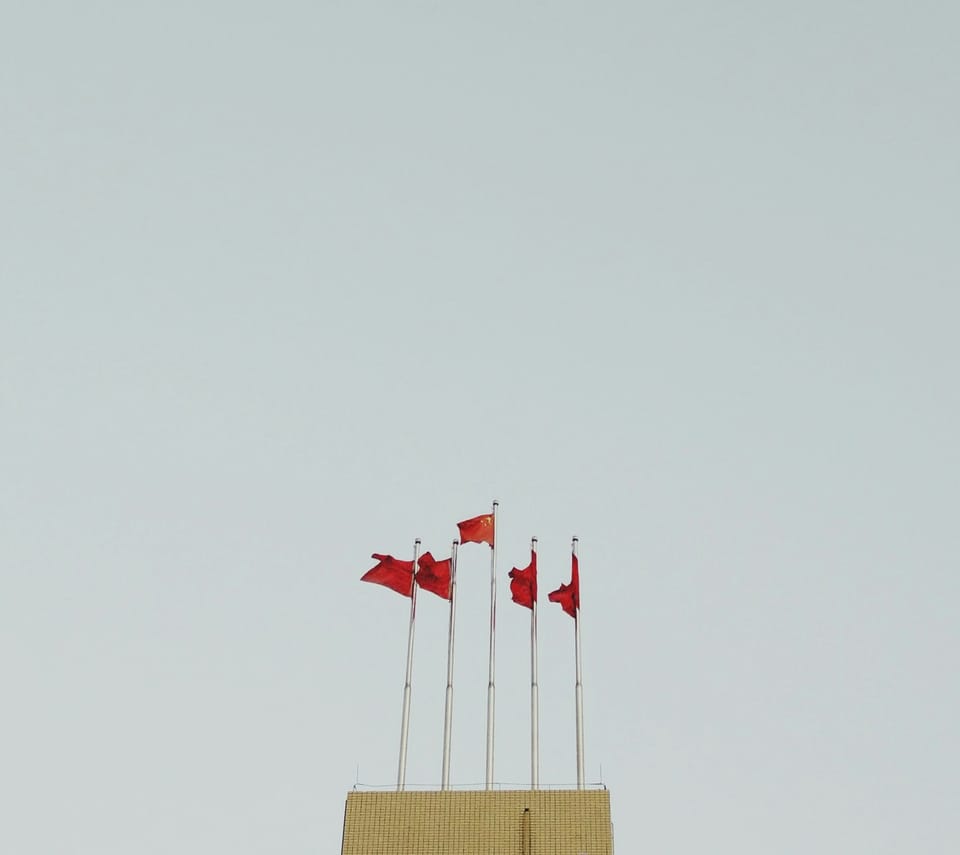What Is China Saying About the Israel-Hamas War?

In honor of summer, starting next week the FilterLabs newsletter will be changing its format for some lighter summertime fare. We’ll still publish on a weekly schedule and offer insights from our growing body of global data, but each letter will be shorter and include some features like reading and TV recommendations from our staff. Look out for cultural commentary (both positive and negative!) coming from our regional teams.
As part of its ongoing mission to gather and analyze data from around the world, FilterLabs has recently launched its coverage of China.
Getting reliable information about China can be difficult. The government seldom backs up its statements and reports with verifiable data. Certain subjects are censored, making it doubly difficult to know what ordinary people in China are thinking. But FilterLabs prides itself on unearthing information that can’t be found anywhere else, especially on a hyper-local level. China thus presents an exciting challenge.
For this newsletter, we looked into Chinese coverage of the Israel-Hamas war, both in mainstream Chinese media and on social media, messaging apps, and local forums.
The Chinese government has been surprisingly critical of Israel, while refusing to decry Hamas’s October 7th attacks. In analyzing mainstream and social media coverage of the war, we can also identify some of the Chinese communist party’s underlying beliefs and geopolitical objectives.
Chinese News
We took a look at sentiment in mainstream Chinese media coverage mentioning Israel, as well as coverage mentioning Hamas. The sentiment charts for the two queries looked fairly similar:
Israel:
And Hamas:
The similarity isn’t too surprising. Hamas and Israel usually appear in the same news stories, so the document-level sentiment will be similar.
But when we used Talisman to look more closely at specific artifacts from the underlying discourse, important differences emerged. Most of the stories about the conflict itself emphasized Palestinians killed in Israeli attacks. For example, when the children and grandchildren of a Hamas commander were killed in a bombing attack, it was a major story. The bombing of the World Central Kitchen aid convey was a big story, too.
The Chinese media portrayed Israel as a client state of the US. But, perhaps more importantly, it portrayed the US as a fickle, ineffectual, and hypocritical partner. Israel was “an extension of the US empire,” but at the same time there were stories about Congress waffling on military aid to Israel, Democrats and Republicans bickering, and even articles claiming that the US was indeed responsible for the helicopter crash that killed Iranian president Ebrahim Raisi. Commentators also accused the US of hypocrisy on free speech, pointing to crackdowns on the campus protests.
Indeed, Chinese mainstream media covered the protests on US campuses extensively. The Chinese media emphasized the chaos of the protests. New York University had “fallen,” Columbia University was in a state of total disarray, and more than a thousand students had been arrested.
If the United States was in tumult, China was steadfast. In early May the Chinese media trumpeted Chinese-led talks between Hamas and Fatah. With China as the broker, these two factions could join at last and present a united front against Israel, and implicitly against the United States. “China’s Brilliance Cannot Be Stopped!” shouted one headline. Another article claimed that “China is expected to achieve another breakthrough after the resumption of diplomatic relations between Saudi Arabia and Iran." (So far this expectation has been frustrated.)
Chinese Social Media
Many of the same stories and themes appeared on Chinese social media:
Once again, the overall sentiment scores were roughly similar in social media posts about Israel and Hamas. The US campus protests were once again a popular topic, as was the death of the Hamas commander’s family.
But the commentary online was far more freewheeling, especially in posts critical of Israel. When Israel closed 28 embassies in early April, one commentator wrote: “I suggest Netanyahu increase cooperation with Tesla and land on Mars as soon as possible because the earth cannot satisfy Israel at all.” There were posts supportive of Israel as well, but plenty of criticism.
Criticisms of the United States were also more pointed. One post claimed that while the US was willing to condemn Israel’s World Central Kitchen bombing, a Department of Defense spokesperson refused to comment on an allegedly similar situation during the retreat from Afghanistan. The post began with emojis: 🤡👉, implying that the US government was a clown show. Other posts accused the US of undermining China’s diplomatic efforts in the Middle East and being a bad ally, even to Israel. The headline of one post about the Democratic Party’s growing criticism of Netanyahu read: “From lover to jerk.”
In both mainstream and social media, then, one of the most pronounced themes in discussion of Israel and Hamas was a familiar one: the contrast between China and the US. And the contrast they drew could not have been clearer. The US is responsible for global instability, and the violence that comes with it. China is on the side of stability, order, and peace—and by far the better geopolitical partner. These narratives were the more or less explicit subtext of the Hamas-Israel coverage, running beneath everything like a bass line under different melodies. The Chinese Communist Party sees the US as an agent of chaos and wants to offer its own sphere of influence as an alternative, and this is the view consistently shaping Chinese media’s Middle East coverage. Chinese social media users seem to concur—or at least that is the message that makes it through the censors.
